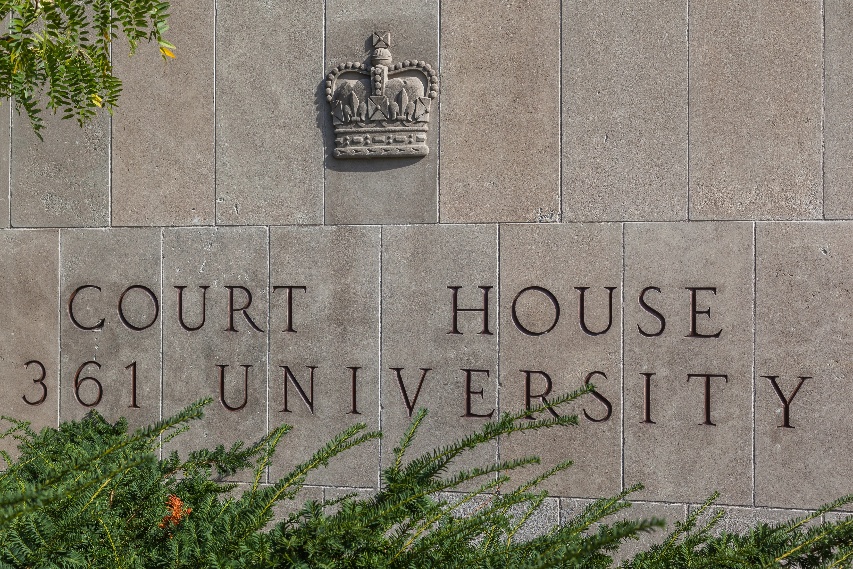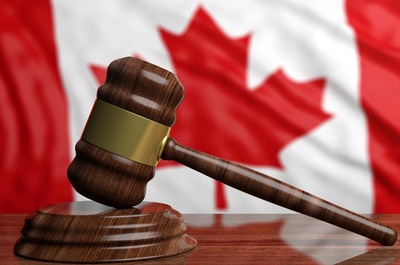If you’ve been arrested, the next step for you will be a bail hearing, where a court will determine whether you’ll be released from custody while awaiting trial or remain in custody.
Bail hearings in Ontario follow specific procedures that are governed by the Criminal Code of Canada. It’s in your best interest to know as much about this process as possible, to give you the best chance of release. Being prepared for your bail hearing in Toronto will also help you feel calmer and put you in a better position to instruct your lawyer.
Key Takeaways
- A bail hearing in Toronto decides if you await trial in custody or at home, typically within 24 hours of arrest, except for possible weekend or holiday delays.
- The Crown usually must justify detention; in reverse onus situations, you or your lawyer must show why release should be granted.
- A detailed bail plan and reliable surety strengthen your case; expect strict conditions and know breaches are separate crimes, so hire counsel early.
What Is a Bail Hearing?
A bail hearing in Ontario is a court proceeding where a judge or justice of the peace decides whether someone who is accused of a crime should be released from custody pending their trial. In most cases, bail hearings happen within 24 hours of an arrest if a judge is available. Weekends and holidays can extend this timeline, but the delay can’t be unreasonable.
What is the Process of a Bail Hearing in Toronto?
Here’s what you can expect during your bail hearing1:
- You’ll be taken from the police station or the jail to the courthouse. You may also be linked to the court via video conference.
- You’ll have an opportunity to speak to your lawyer or a duty counsel (a free lawyer provided by the court).
- The Crown will read out the allegations, and in some cases call a witness such as the investigating officer. If they believe it’s appropriate, the Crown will show evidence that you should remain in custody.
- Your lawyer might call you or your surety (see below) to the stand to convince the judge that you will follow the conditions of your bail if it’s granted.
- The court will consider the seriousness of the charges against you, your criminal record, your bail plan, and the bail conditions to determine if you should be released from custody.
Hiring a criminal lawyer as soon as possible can help you prepare for your bail hearing. Your lawyer will explain exactly what will happen when you appear in court.
Key Aspects of a Bail Hearing in Toronto
At a bail hearing, all parties have specific roles to play.
The Crown’s Role
The Crown’s responsibility at a bail hearing is to prove that ongoing custody is appropriate. They might point to:
- The seriousness of the offence.
- The accused’s criminal record or past failures to appear in court at the scheduled times.
- Safety concerns for the public or for victims.
- The risk of witness tampering.
Occasionally, the onus switches to the accused and their lawyer. This is called “reverse onus2” and applies to offences in the Criminal Code of Canada section 515(6)3, which include:
- Certain firearms offences.
- Serious drug trafficking or drug production offences.
- Charges laid while the accused is already out on bail.
- Some intimate partner violence
When reverse onus applies, it’s the responsibility of the accused (through their lawyer) to show why release is appropriate in their case.
The Role of the Defence
The defence’s role at a bail hearing in Toronto is to represent their client and argue for their release. The defence lawyer also helps the accused to build a bail plan1, which addresses any concerns the Crown or the court might have about the release.
A strong bail plan includes:
- Where you’ll be living while you’re out on bail.
- Information about who will supervise you while you’re on release, such as a surety or a bail program.
- What release conditions are reasonable for you, given restrictions you might have, such as work or school requirements.
- Information about your employment or enrollment in school programs/courses.
- Your plan for addressing drug or alcohol use issues.
Your lawyer might negotiate your release and the conditions of your release with the Crown before the bail hearing in Toronto, which will save time and stress for you.
Determination of Bail Conditions
If the court agrees to release you until your trial, they will normally impose some conditions4. These might include:
- Reporting to a bail supervisor or police officer at scheduled intervals.
- Living at a specific address.
- Refraining from contacting certain people.
- Abstaining from alcohol and drugs, if relevant in your case.
- Surrendering your passport.
- Restrictions on when you can leave your residence, where you can go, and when you must return home.
Breaching bail conditions is a serious offence that could lead to new charges or make it harder for you to get bail in the future.
Designating a Surety
A surety is a person who agrees to supervise the accused person and make sure they follow all their bail conditions. Ideally, the surety is a responsible adult who has stable employment, good standing in the community, and no criminal record. Some cases require more than one surety. The surety enters a recognizance, promising to pay a set amount of money if the accused fails to comply with their conditions.
At a bail hearing in Toronto, the surety qualifies for the role by testifying about their relationship with the accused, their understanding of the charges and conditions, their supervision plan, and their financial situation.
Presentation of Evidence
At a bail hearing in Toronto, the court doesn’t decide guilt or innocence, so the rules of evidence are more flexible than at a trial.
- The Crown can rely on police summaries or reports and even hearsay.
- The defence can submit evidence such as proof of employment, community references, and letters that speak to the accused’s character.
- Witnesses are not required to support the evidence, although sureties usually have to testify in person.
Judges at bail hearings in Ontario can consider any evidence that is credible and trustworthy, as long as that evidence is fair.
How a Lawyer Can Help with Your Bail Hearing
If you’re facing a bail hearing in Toronto, hire a lawyer as soon as you can. A skilled criminal lawyer will assist you by:
- Identifying the best release plan for you, given the circumstances.
- Prepare any documentation you need.
- Get your sureties ready to testify for you.
- Negotiate with the Crown for your release with the fewest conditions possible.
- Ensure your rights are protected.
- Guide you through the process and keep you informed about what’s happening.
- Explain any parts of the process that are unclear to you.
What You Should Remember
- A bail hearing in Toronto determines whether you’ll be released from custody or held until your case comes to trial or is otherwise resolved.
- In most cases, your bail hearing will be held before a judge or a justice of the peace within 24 hours of your arrest. Weekends and holidays might result in a delay, but it is your right to have a bail hearing as soon as possible.
- The Crown usually has to show why detention is necessary, although in reverse-onus situations, you or your lawyer must show why you should be released.
- You and your defence lawyer must prepare a detailed bail plan outlining where you’ll live, who will supervise you, and what conditions are reasonable under your circumstances and the alleged offence.
- Typical bail conditions include reporting to a bail supervisor, living at a set address, having no contact with certain people, abstaining from drugs or alcohol, and following curfews or travel restrictions.
- A surety (often a close friend or family member) can help by supervising you while you’re on bail and ensuring that you follow your conditions.
- Breaking bail conditions is a separate crime and can make it more difficult for you to get bail in the future.
- Hiring a skilled lawyer as soon as possible after your arrest will help ensure your hearing is fair and efficient and that you get the best outcome possible given the circumstances.
If you need a Toronto bail hearing lawyer, contact the team at Zamani Law. Led by renowned criminal lawyer Farid Zamani, we will ensure that your bail hearing is fair and that you have the best chance at release possible, with conditions that help you continue with your life. Get back to your family, work, and school responsibilities as soon as possible with help from Zamani Law.
References
- https://www.legalaid.on.ca/faq/bail-hearings/
- https://lawlessons.ca/legal-dictionary/reverse-onus
- https://laws-lois.justice.gc.ca/eng/acts/C-46/section-515.html
- https://www.legalaid.on.ca/faq/bail-conditions/
About the Author
Farid Zamani is the founder of Zamani Law, a GTA-based criminal defence firm committed to protecting clients’ rights with professionalism and compassion. After earning his law degree at Buckingham Law School in the U.K., Farid worked at Daley Byer Criminal Law for 12 years before launching his own firm. Farid is skilled in all areas of criminal law and has built a strong reputation for his adeptness in navigating complex cases and achieving successful outcomes. Dedicated to the community, Farid is the cofounder of the non-profit Children Without Borders and has contributed to many other charitable organizations.





